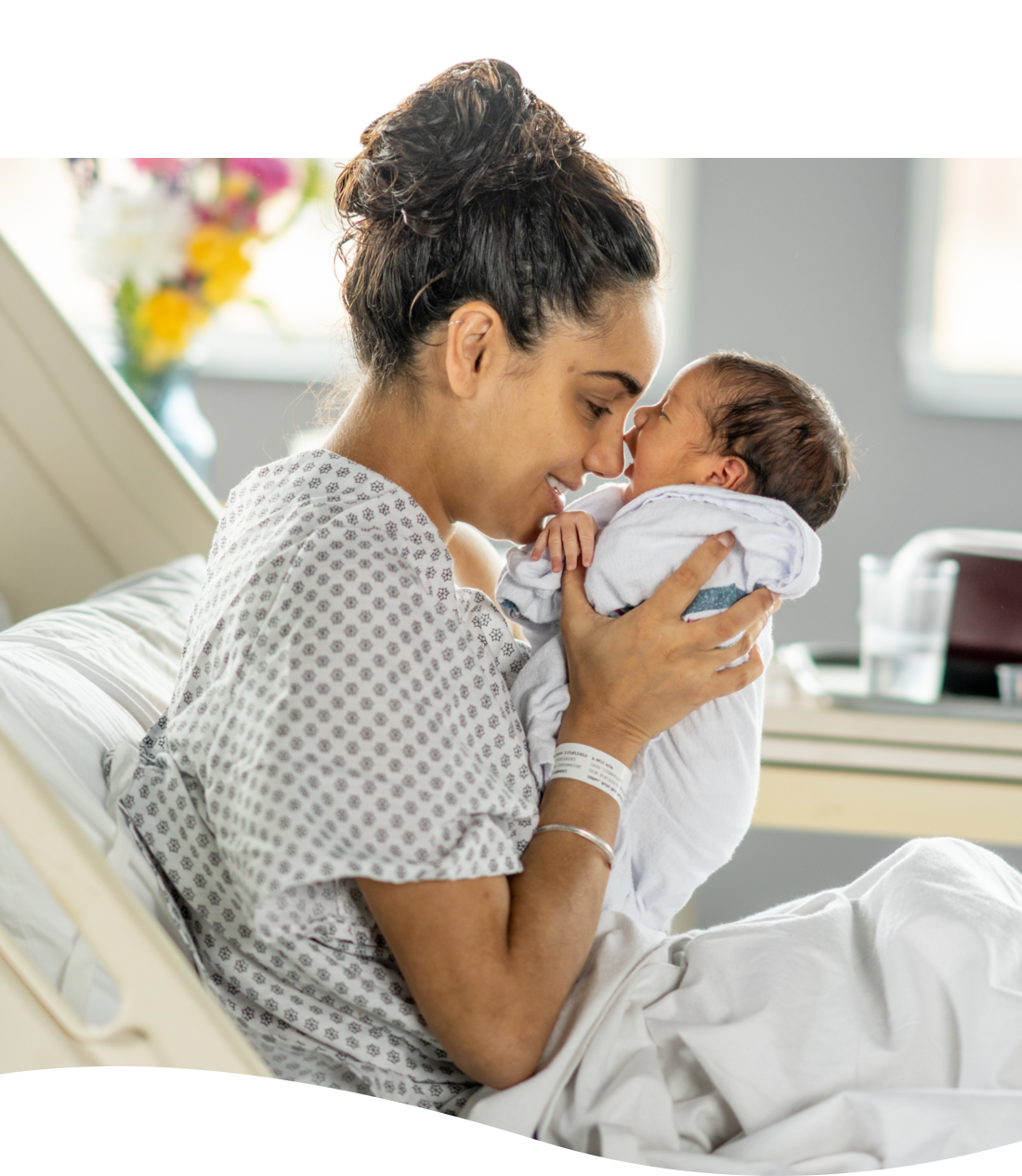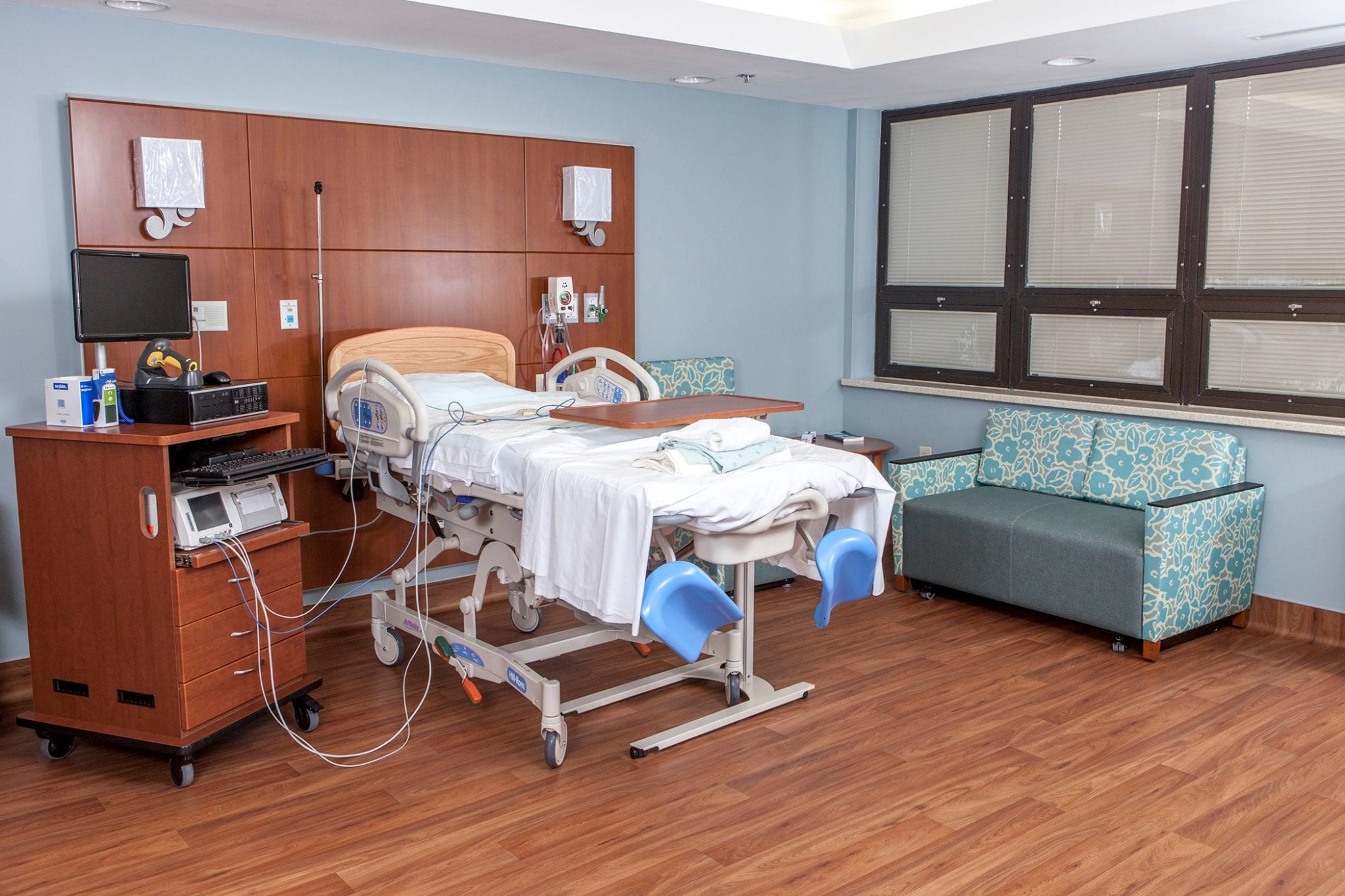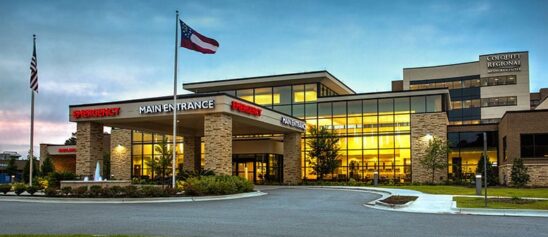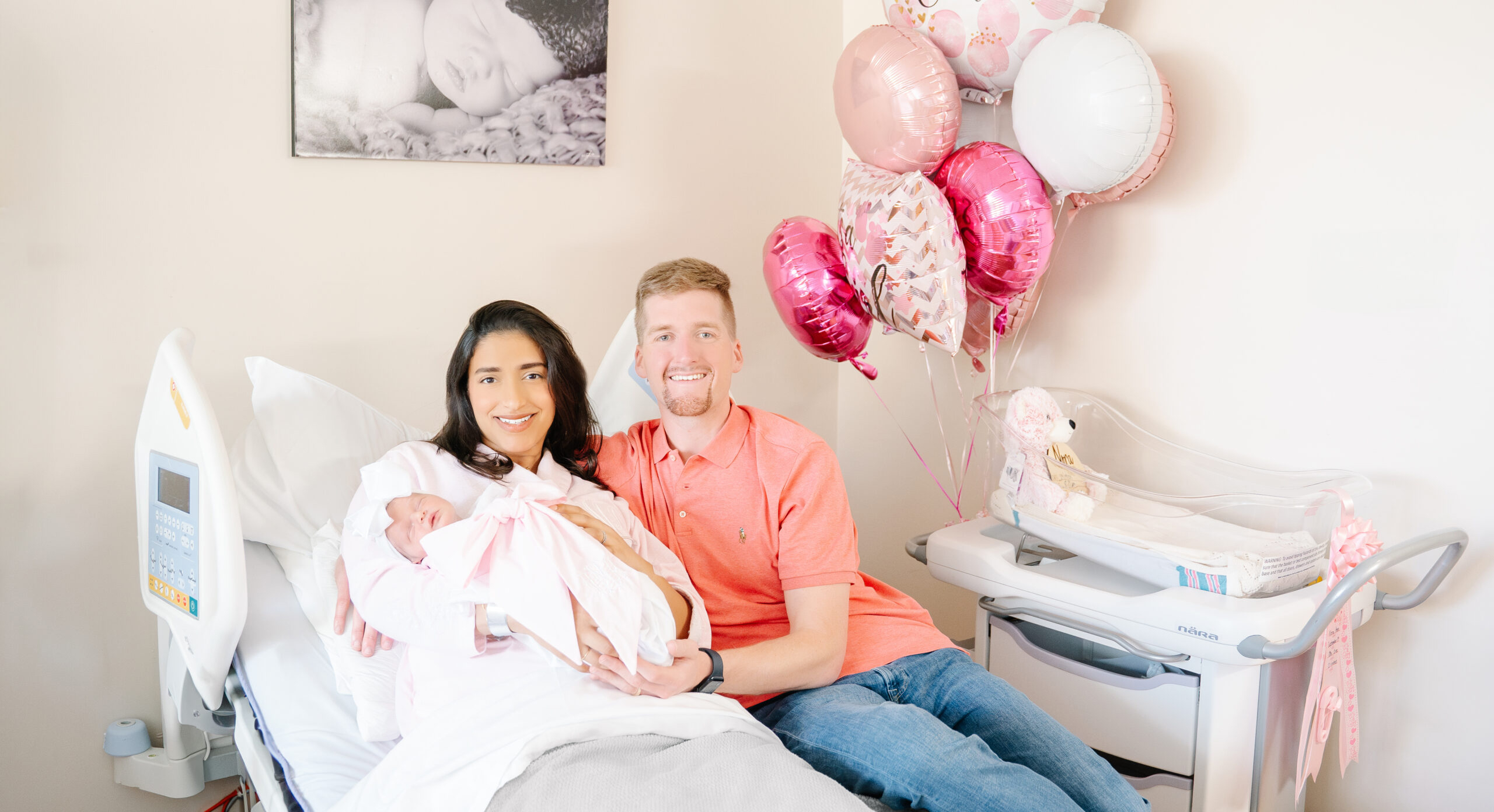
Every birth story is unique.
Bringing a new baby into your family is a precious journey. From the moment you learn you’re expecting, emotions and questions arise. Colquitt Regional’s Maternal and Infant team is here to support you every step of the way.
Because every birth story is unique, we offer a range of services to match your needs. Whether you prefer natural childbirth, epidural-assisted or cesarean delivery, our team ensures a safe, special and memorable experience.
Our Maternal Infant Unit combines antepartum, labor, delivery, postpartum and infant care in one comfortable setting. With over 700 deliveries each year, we provide advanced technology and expert nursing care.
Maternal Infant Unit
- 4 labor and delivery suites with room for family at your bedside. These suites are designed to keep your baby with you and your loved ones while receiving post-birth care.
- 10 private postpartum suites that are fully equipped for recovery and bonding after delivery.
- 2 antepartum suites that allow us to provide care when special monitoring is needed during your pregnancy.
- 2 operating room suites for planned and unplanned cesarean section deliveries.
- Our Special Care Nursery provides exceptional newborn care when needed.
Schedule a Tour or Call Us at 229-891-9000.

Services
A healthy pregnancy promotes a healthy birth, and getting early and regular prenatal care promotes a healthy pregnancy. You may even choose to start your journey with a pre-pregnancy visit to an obstetrician to help you prepare for a healthy pregnancy before you conceive.
When you suspect you are pregnant, an appointment with your obstetrician will confirm your pregnancy and create your care plan. Prenatal care will keep you informed about important steps to protect the health of you and your baby and can help to prevent complications. Your appointments will usually include a physical exam, weight checks and urine samples. Depending on your stage of pregnancy, your doctor may also recommend blood tests and ultrasound exams.
Colquitt Regional’s team of providers is excited to welcome you to your unique pregnancy journey. You can choose an obstetrician here.
Sometimes a cesarean section (c-section) delivery is required to ensure the health of you and your baby. Currently, a little over 30 percent of deliveries in the U.S. are by c-section. There are many reasons for a c-section instead of a vaginal delivery, depending on your provider, your previous deliveries and medical history and your baby’s health in utero, among other considerations. C-sections are safe for mothers and babies.
For some moms, a cesarean birth is recommended as a medical precaution even before they go into labor. Planned c-sections may be due to certain health issues with you or your baby, including a multiple pregnancy or a past c-section delivery. Other reasons may include the breech position of your baby (feet or bottom first instead of head down), your baby’s size or if you have a chronic condition such as heart disease, diabetes, high blood pressure or kidney disease. Most women will have local anesthesia, either an epidural or a spinal block, that will numb them from the waist down and enable them to be awake and aware during delivery.
There are times when labor and/or a vaginal birth may be underway and your doctor decides that unplanned or emergent delivery by C-section is best for you and/or your baby due to a sudden change in the health of you or your baby. Lack of labor progression, fetal distress, placenta abruption or umbilical cord compression or prolapse are some triggers for delivery by C-section. While the process is similar, a few things will differ, including the speed and urgency of the procedure.
Because a C-section is considered major surgery, you can expect to spend two to three days in the hospital. It is important to get out of bed as directed by your care team and walk around to help ease gas pains, help you have a bowel movement, and prevent blood clots. Once you go home, you should limit your activities and rely on family and friends. Full recovery usually takes between four and six weeks.
Labor for childbirth most often happens naturally. Sometimes, however, your doctor may recommend labor induction if your pregnancy has gone two weeks past your due date or when there is concern for the health of you or your baby. For women with low-risk pregnancies, you and your doctor may agree that an elective induction is the best option, once your baby’s gestational age is at least 39 weeks. Research shows that inducing labor during this time lowers several risks.
Your labor induction will be scheduled according to your needs. After you arrive at the hospital, your care team will use medication or other methods to initiate labor for you, rather than your body starting it naturally. The start of labor will depend on how your body responds to the medication. For some, labor happens quickly, while others can take hours to days to begin active labor. Typically, we advise patients to expect at least 24 hours.
Get a head start on your maternity journey by pre-registering for your delivery at Colquitt Regional. This simple step will help us be prepared for your arrival and ensure everything is ready for your big day.
If you have not completed pre-registration in advance of your arrival, you will need to sign forms and make any necessary payments when you arrive at the hospital in labor.
Certain health conditions and your age can make a pregnancy high risk. Some pregnancies begin as high risk, while others become high risk at some point during the pregnancy. You may need extra medical care before, during and after delivery, helping to reduce the possibility and/or severity of complications. Many women experience healthy pregnancies and normal labor and delivery despite special health needs.
Your obstetrician may refer you to a maternal-fetal medicine specialist who focuses on managing the health concerns of you and your baby prior to, during and shortly after pregnancy. Your specialist may act as a consultant during lower-risk pregnancies and/or as your primary obstetrician in especially high-risk pregnancies.
Our team of providers can support your needs and guide your care to avoid or reduce any risks you may face. Find an obstetrician early in your journey to ensure a safe and healthy pregnancy.
Infertility is diagnosed when women are unable to get pregnant after one year of trying to conceive (or six months, if over 35 years of age). Causes can include ovulation disorders, endometriosis, low sperm count or low testosterone. The risk of infertility increases with age. The good news is that there are many treatment options available. The majority of women and couples with infertility have a high chance of successful pregnancy.
Your treatment plan may involve only you or you and your partner, depending mostly on the cause of your infertility and your goals. Ideal options may vary with your age, how long you have been trying to conceive and your personal preferences.
The many treatment options include medications, surgery or assisted reproductive technologies (ART) such as Intrauterine Insemination (IUI) or In Vitro Fertilization (IVF). Often, lifestyle changes or adjusting the frequency and timing of intercourse can improve your chances of pregnancy. Your treatment may also involve a combination of methods.
Infertility treatment is a journey that can be ultimately rewarding but possibly long and challenging, with emotional, physical, financial and psychological impacts. It is important to surround yourself with caring people to support you, and you might consider joining a support group. Consult your obstetrician to discuss your concerns and options.
Nitrous oxide is a quick-acting gas that you breathe in through a mask and it can help lessen pain during childbirth. It works by blocking the perception of pain and anxiety. It is safe and effective to use during labor. It is self-administered by the mother in labor by holding a mask to her face and breathing in and out. While there are many benefits to Nitrous Oxide, some side effects include sedation, dizziness and nausea. If you are interested in using Nitrous Oxide for pain relief in labor and delivery, please talk with your OB provider.
Experiencing the loss of a pregnancy brings unimaginable pain and grief. Having a miscarriage can be very difficult. The emotional impact can take longer to heal than physical recovery does. You may experience an emotional roller coaster, including numbness, disbelief, anger, guilt, sadness, depression and difficulty concentrating.
Emotional distress can also manifest in physical symptoms such as fatigue, trouble sleeping, loss of appetite and frequent crying. Hormonal changes after miscarriage may intensify these symptoms. As you navigate this difficult time, be sure to reach out and lean on those closest to you, seek counseling and allow plenty of time to grieve and remember.
At Colquitt Regional, our team of providers and healthcare professionals can offer and suggest resources to support your emotional and physical needs during this tender time.
At Colquitt Regional, we’re committed to supporting you before, during, and after delivery. Our Maternal Infant Unit offers educational resources and support services designed to help families feel confident and prepared.
Childbirth Education Class
Our monthly childbirth class is designed for expectant parents and covers what to expect during labor, delivery, and the postpartum period. Topics include pain management options, the birth process, newborn care basics, and hospital procedures. Classes are led by experienced professionals and provide an opportunity to ask questions in a supportive environment. Seats are limited. Reserve your spot for one of our upcoming classes by clicking on the date you would like to attend below:
Can’t attend in person? Watch our online childbirth class video:
Breastfeeding Support Group
Our monthly breastfeeding support group offers guidance and encouragement for breastfeeding mothers at any stage. Led by trained lactation professionals, the group provides education, troubleshooting tips, and peer support in a relaxed setting. Our support group meets on the third Tuesday of every month at 4:00 p.m. in the Ameris Bank Medical Education Center. For breastfeeding tips, please watch the video linked below:
Locations
Providers
Request More Information
From pregnancy to delivery and beyond, our dedicated team is here to support you every step of the way.










